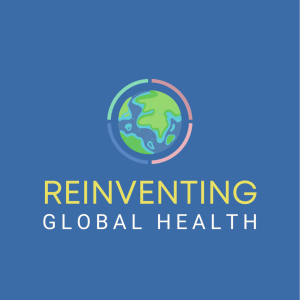
Thursday Feb 09, 2023
Global Health: Can Technology Boost Equity? - with Grant Miller, MD
Main points
- Importance of technology in global health: The single most important driver of health improvement around the world is technology
- Technology definition: Anything that defines how input is transformed in output (devices, drugs, know how, management, etc.)
- Example: the bacteriological revolution in the 19th Century
- Positive and negative aspects: Choices made on social preferences regarding redistribution
- Differentiation of technology with intrinsic property vs distributive property (expensive vs inexpensive ones). Economic growth increases inequity but it does not mean economic growth is bad. Wealth distribution is the issue
- Inexpensive technology has the potential to reduce health inequality from the get-go. Examples: (1) Rehydration therapy, (2) Penicillin, and (3) Antiretroviral drugs in places like sub-Saharan Africa
- Differentiation between progressive and regressive technologies. How are they produced and what are the incentives to produce and distribute them?
- Example: For the pharmaceutical industry, market forces are a regressive factor. Positive factors include the public sector, philanthropies but success benefits are not as direct and rewards as immediate as the for the market.
- Epidemiology of developed and developing countries is converging on chronic diseases. It will put the focus more and more on distribution
- Impact evaluation: Experimental methodology, and others like models done by international bodies
- How is technology prioritized? 2 ways: (a) Centralized (using cost-effectiveness guidelines). Example: endemic malaria and (b) Decentralized (people choosing their preferences)
- Access to potable water. Reasons for not being done: (a) Multiple actors having different incentives, and (b) Water disinfecting pills give it a bad taste
- Some progressive technologies address issues that don’t exist for high income households. Example: Cookers
- Value of better health (primary and secondary)
- Importance of politics. Misalignment of incentives (in government and other organizations)
- For the poorest: No other incentive than moral. Relying on philanthropy
- Trends for technology and health equity: Hopeful but the need is still great, but caution must prevail for chronic diseases
- Strategies to bridge the gap between developed and developing countries: Economic commitment, choice of technology (for example, technology related to nutrition). Real area of focus: Technologies that don’t require behavior change
BIO
As a health and development economist based at the Stanford School of Medicine, Dr. Miller's overarching focus is research and teaching aimed at developing more effective health improvement strategies for developing countries.
His agenda addresses three major interrelated themes: First, what are the major causes of population health improvement around the world and over time? His projects addressing this question are retrospective observational studies that focus both on historical health improvement and the determinants of population health in developing countries today. Second, what are the behavioral underpinnings of the major determinants of population health improvement? Policy relevance and generalizability require knowing not only which factors have contributed most to population health gains, but also why. Third, how can programs and policies use these behavioral insights to improve population health more effectively? The ultimate test of policy relevance is the ability to help formulate new strategies using these insights that are effective.
Academic Appointments
- Professor, Health Policy
- Senior Fellow, Freeman Spogli Institute for International Studies
- Senior Fellow, Stanford Institute for Economic Policy Research (SIEPR)
- Professor (By courtesy), Economics
- Member, Maternal & Child Health Research Institute (MCHRI)
- Affiliate, Stanford Woods Institute for the Environment
Administrative Appointments
- Director, Stanford King Center on Global Development (2019 - 2019)
- Director, Stanford Center on Global Poverty and Development (2017 - 2019)
- Director, Stanford Center for International Development (2014 - 2017)
- Executive Committee, Stanford Population Center (2011 - Present)
- Faculty Advisory Board Member, Stanford Journal of Public Health (2011 - Present)
No comments yet. Be the first to say something!